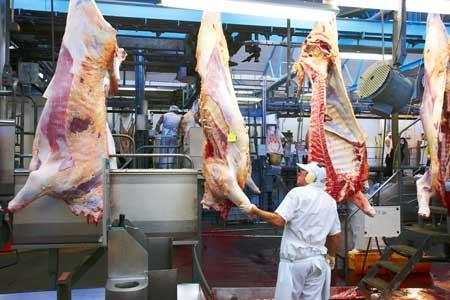|
I RECENTLY picked up a business magazine that had a lot of space dedicated to productivity and innovation. It’s a thought-provoking topic. Lifting New Zealand’s game in these areas – boosting the health and competitiveness of homegrown companies and, through exports, our balance of trade and national wealth – is the Holy Grail.
What tends not to get mentioned, is the role of energy. This continues to surprise me, given how many times I’ve seen dynamic, forward-thinking businesses improve performance, productivity and profits by simply using their energy better. Many of their initiatives – such as changing behaviour – cost little to implement and deliver savings and business benefits from day one.
When is the wider business sector going to follow suit – and cash in?
EECA has worked with numerous companies that succeed in slashing costs and strengthening their competitive advantage through energy management. Our website is packed with case studies that make inspirational reading – and contain hard numbers.
These are businesses led by creative thinkers. They have scrutinised their processes and are driven to do things as well as possible. They often take a longer term view, investing in capital projects now that will deliver savings to the bottom line in a few years – savings that free up cash for product development or market expansion.
These companies are usually highly attuned to where markets are moving and what their customers are thinking. And they see energy not as an invisible commodity that they can’t influence, but as an input which needs managing.
Surprisingly, this isn’t the majority of Kiwi businesses. Our market research shows that two thirds aren’t doing anything to manage energy. Though nearly eight out of ten companies see energy as one of their top ten priorities, most aren’t addressing it. The barriers are time, knowledge and capital. Which is understandable – running a business is a demanding job and there are many competing issues on the ‘urgent’ list.
But here’s a challenge: if you’re too busy to look at ways to improve cashflow and productivity – if you’re too busy to look at where you can innovate – what shape is your business in? And where will it be in five to ten years?
A focus on key sectors
Like most Government agencies in these constrained financial times, EECA is charged with making every penny of its budget deliver maximum benefit. We’ve reviewed our EECA Business programmes and this year, rather than spreading our energies across a wide range of industries, we’re honing in on key sectors. The most significant of these are food and beverage, and tourism (our two biggest foreign exchange earners).
How will we help? The bigger energy spenders in these sectors (companies consuming $250K of energy and upwards annually) can receive a grant of up to $50K to help fund energy-related projects. We’re most interested in projects that can demonstrate a significant amount of cost effective energy savings or reduced carbon emissions – and we’re looking for technology or practices that are widely applicable to other businesses.
Funding rounds for our business grants are monthly, giving companies more opportunities to apply. While we will give extra weight to applicants in our key sectors, projects of high merit in other industries can also gain funding (for example, those with very high energy savings).
A new offering for SMEs
Traditionally, our effort has been focused on helping the highest energy users. But smaller consumers can also get real business benefit from saving energy. And, taking a wider view, there’s potential to add brand value across our key sectors if a large number of smaller enterprises gain a good reputation for energy use. This is why we’re consulting on ideas for a programme to help small to medium sized businesses. We’re looking at models that utilise our industry partnerships and bring in experienced third party providers.
|
The proof exists
There are proven technologies and practices in our key sectors that EECA will promote heavily – because we know they work.
In food and beverage for example, two of the biggest energy-saving opportunities are in process heat and efficient refrigeration. Two companies that illustrate the tangible business gains are Auckland Meat Processors and Tegel Foods.
Auckland Meat Processors installed an efficient automated cleaning system that reduced hot water use by 36 percent and saved $200K a year in energy costs. Tegel Foods uses heat recovery in its New Plymouth poultry plant, taking waste heat from refrigeration to heat water – saving $110K a year in energy costs.
In the wine sector (which trades heavily on environmental credentials in export markets) heat recovery has delivered savings and brand benefits to Craggy Range, St Helena and Yealands Winery, to name a handful.
From the work that EECA has done with businesses over the years, we estimated that most process heat users could improve the energy efficiency of their systems by five to 20 percent. To validate this, we ran two pilot studies last year – one looking at boiler combustion tuning, and one running thermal audits of process heat systems. The findings were extremely heartening. Seven of the nine companies that took part in the boiler tuning study found efficiencies and cost savings – up to $17,500 per annum for small operators and up to $120K per annum for the larger ones. For every one dollar EECA invested, $13 of savings were identified and implemented immediately.
In another pilot study, EECA helped fund audits of process heat systems in four large businesses: Canterbury Woolscourers, Dongwha Patinna Mataura, Mainland Products Christchurch and Tatua Dairy Products. The pilot found significant savings opportunities for all four – many with a payback period of less than a year.
The learning is there. The savings are there. The benefits are all there to be taken. Now’s your chance to step up, New Zealand business.
Article by Murray Bell, manager EECA Business. For more information on programmes and case studies see www.eecabusiness.govt.nz
|






